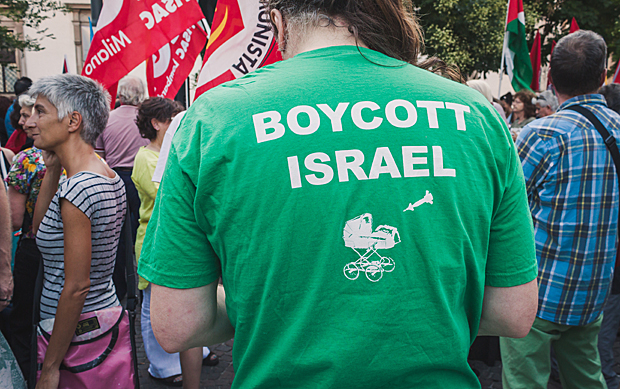7 Aug 2014 | Draw the Line, Events, Youth Board
For July’s Draw the Line event, Index hosted a workshop in our offices to debate the question, “Can art or journalism ever be terrorism?” This daunting question provoked some interesting answers, delving deeper into the subject matter the group began to question how do we define art, journalism and terrorism? What do we expect the role of artists or journalists to be in society? And who decides this?
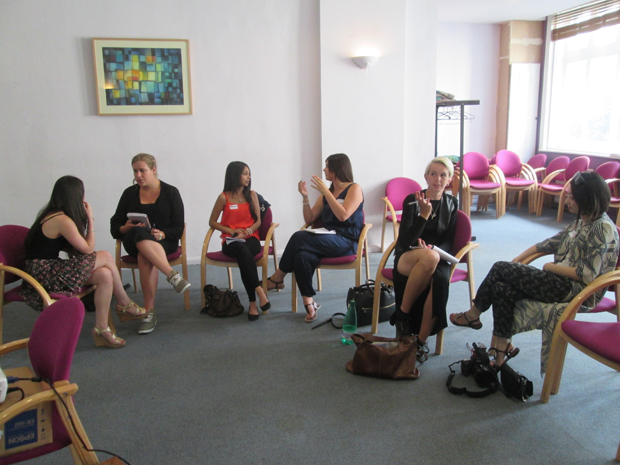
Looking at both sides of the argument we presented the group with several different situations where artists or journalists had been censored and invited them to take part in a role-playing exercise where they had a go at playing both the person being censored and then subsequently the censor.
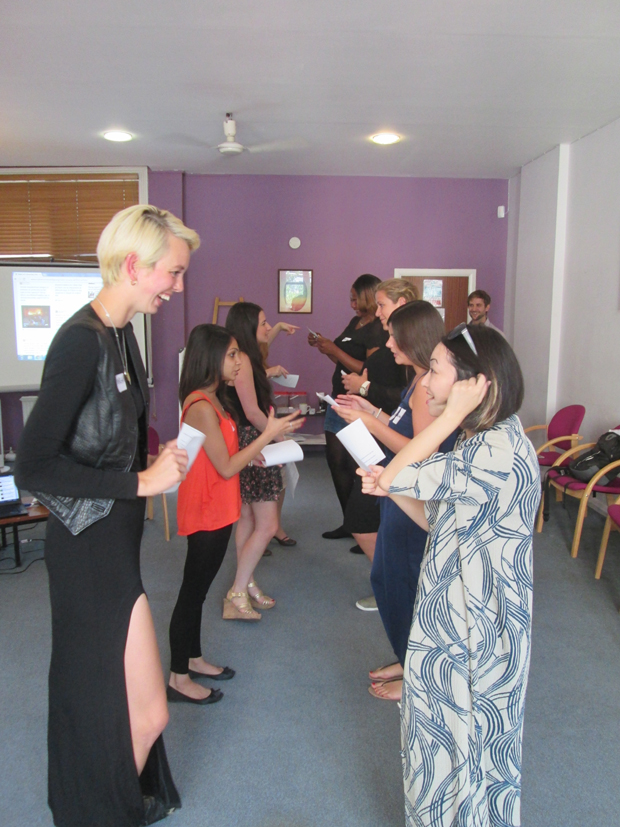
By playing out these situations from either side of the debate, the group found that it became more and more difficult to say who was definitively right and wrong in each of these situations? Who had the more legitimate right to express themselves? We all agreed the bottom line, of course, should lie in the guarantee of basic human rights for all sides – perhaps as laid out in Article 10 of the Human Rights Act, Article 19 of the UN’s Universal Declaration of Human Rights or America’s First Amendment.
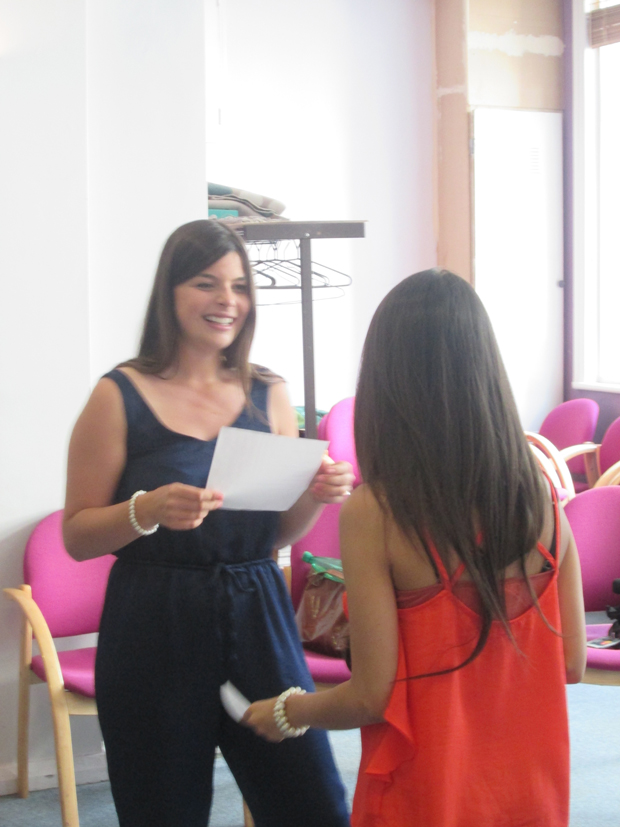
These discussions all finally lad into a formal debate with two teams arguing for and against the statement ”This house believes that art and journalism can be terrorism’.
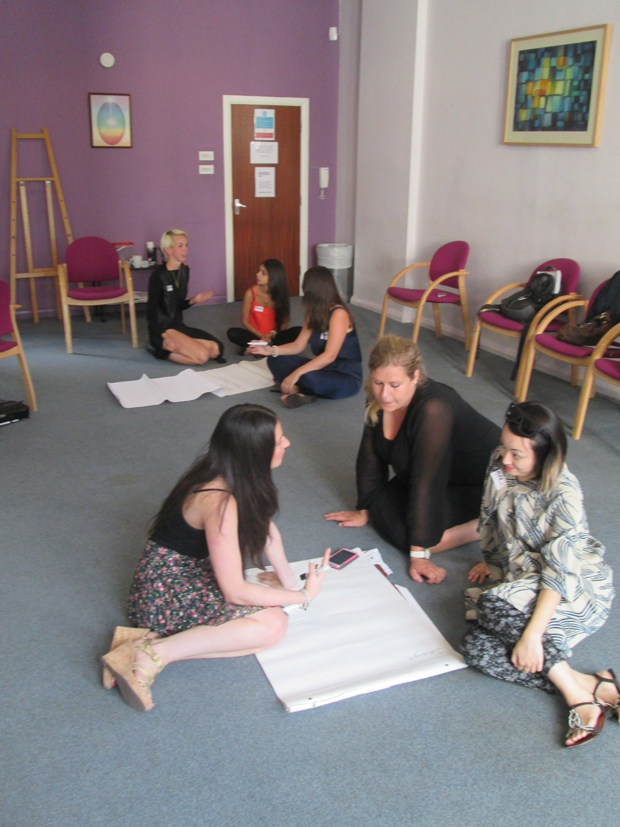
There was in the end no clear answer, but all of the group came away with many more questions of their own. As one participant said “there’s no black and white answer as I’d previously assumed”. All agreed that a wider debate was needed on the role art and journalism play in society, as well as more information on how that can and does differ all over the world.
Keep up with the debate on Draw the Line here and keep an eye out for our next event where we will be facing a new question and asking where do you draw the line on free speech?
7 Aug 2014 | News and features, Politics and Society, Religion and Culture
First, the inevitable throat clearing and hand wringing. The most recent conflict between Israel and Hamas has been beyond horrendous. As I type, the ceasefire is holding. Over 1,800 Palestinians have lost their lives, more than 300 of them children. Dozens of Israelis, mostly young conscript soldiers, are also dead. There is an enormous imbalance, in firepower and in defensive capability. Better men than I have gone mad attempting to imagine a way to stop this happening again. Even that statement, I realise, reads like a cop out, but a particular sense of despair looms over this latest manifestation of a war that is only ever dormant at best.
Some clearly feel that the horror has gone too far. Author Hari Kunzru, for example, has decided to join calls for a cultural boycott of Israel. Writing on his Facebook wall, Kunzru cited an op-ed in the Jerusalem Post which suggested the “dismantling” of Gaza and the “relocation” of its non-humanitarian population. Kunzru also cited “”the targeting of schools and hospitals, the picture of a child my son’s age being dug out of rubble that reduced me to helpless tears, the total disregard of the Netanyahu government for international laws and norms…” as signs that Israel was a country that had “lost its moral compass”.
This is notable not because Hari is a well-known figure in the arts world – there are enough of those willing to sign up to any cause that comes along, and more than enough already willing to tell us exactly what they think about Israel/Palestine, or Cuba, or any other issue to which sections of the left are drawn to, like particularly verbose moths to the flames of revolution, or, worse, the great unspecified “resistance”.
No, this is notable exactly because Hari Kunzru is not one of those people. Hari is thoughtful and unshowy. And Hari has actually put in real work for free speech. I recall, in 2012, scrabbling to find a local sympathetic lawyer who would represent Hari when he faced serious risk of prosecution for reading from the Satanic Verses at the Jaipur Literary Festival, in solidarity with Salman Rushdie. He has made himself available for organisations such as Index and English PEN well beyond the call of duty. So when someone such as Hari Kunzru identifies with a cultural boycott, it means we have to take the question seriously.
The concept of boycotts, and particularly cultural and academic boycotts, have for a long time been problematic for people engaged in the promotion of free expression. Most criticisms of censorship are based on a fundamental assumption that communication of ideas is, in and of itself, a good thing. Some vague belief abounds based loosely on the Hegelian triad of thesis, antithesis, synthesis.
This can sometimes sound naive, but it does lead to useful perspectives on any argument: 1) that there are entirely sincere, well-meaning people, who may hold views completely anathema to your own, and 2) following from that, in formulating any position on proscription of certain attitudes or beliefs, or people, one must imagine being on the wrong end of the argument – a kind of categorical imperative crossed with the “golden rule”, that can end up making the certainty of others unsettling.
Boycotters often carry that absolutism and conviction that brooks no argument: a simple righteousness anchored in the belief that their view of the world is so self-evidently correct that anyone who is unconvinced by them is either deviant or deficient.
Then there is always the question of who benefits from boycotts? And who is hurt? The traditional, free expression view on cultural boycotts is that they punish precisely the people who are most outward looking and also most likely to seek change in their own countries. Is it fair to punish the artists for the actions of the government, as we have seen with the cancellation of Israeli show The City at the Edinburgh Festival following protests by the Scottish Palestine Solidarity Campaign? Or to request that the UK Jewish Film Festival should ditch Israeli government funding before it can use a venue, as Kliburn’s Tricycle Theatre has, in the name, it says, of attempting to depoliticise the event?
It is argued that theatre companies, dance troupes etc are legitimate targets for boycott if they benefit from state funding, but in truth, there is hardly a theatre company in the civilised world that does not take funding from government agencies: indeed, most western liberals see state agency funding of arts as a sign, even a crucial part, of a healthy democracy, and it is rare that state-funded companies engage in Red-Army Choir style propaganda tours – though Venezuela’s Orquesta Sinfónica Simón Bolívar, decked out in baseball jackets in the colours of the national flag, can sometimes feel a little too Potemkin for comfort.
Writing on the subject (£) of anti-Israel boycotts back in 2012, Irish Times literary editor Fintan O’Toole drafted these five rules for artists and writers invited to perform in countries with dubious records:
1) Don’t take money, directly or indirectly, from governments that systematically abuse human rights, or from oligarchs who benefit from those abuses.
2) Give a significant part of your fee to human-rights defenders or oppressed artists in the relevant country.
3) Don’t accept any restrictions on your own freedom of expression when you’re in that country.
4) Don’t perform to audiences forcibly segregated on lines of race, gender or ethnicity.
5) Don’t let yourself be used for propaganda purposes.
This was very much the approach used by Sweden’s Loreen during and after the Eurovision Song Contest hosted by Azerbaijan in 2012. The singer made efforts to meet opposition figures and voice their concerns in press conferences and TV interviews, and was widely praised for it.
In fact, O’Toole’s rules are not a million miles from the boycott pledge signed by Hari Kunzru, which states: “We support the Palestinian struggle for freedom, justice and equality. In response to the call from Palestinian artists and cultural workers for a cultural boycott of Israel, we pledge to accept neither professional invitations to Israel, nor funding from any institution linked to its government until it complies with international law and universal principles of human rights.”, though there is a crucial difference in that the boycott statement punishes both state and non-state entities, thus preventing signatories from accepting invitations from, say, a hypothetical human rights group.
And this is the problem I will continue to have with boycotts against nations, particularly nations’ cultural endeavours. They seem too blunt, too broad and flawed. Even the much-cited cultural boycott against South African apartheid went awry, with the bizarre irony of Paul Simon being criticised for technically breaking the boycott by travelling to the country to work with Ladysmith Black Mambazo, the black acapella singing group that was far from a friend of the regime.
But the problem is that for many seeking to register their disgust at the actions of foreign governments, boycott seems the only option. Perhaps it’s time for those of us uncomfortable with the idea of shutting down free speech to figure out new avenues of expression.
This column was posted on August 7, 2014 at indexoncensorship.org
6 Aug 2014 | Azerbaijan Statements, News and features, Statements

Rasul Jafarov, Arif Yunus and Leyla Yunus (Photos: Rasul Jafarov (© IRFS), Arif and Leyla Yunus (© HRHN))
60 NGOs from 13 Human Rights Houses call upon the Azerbaijani authorities, in their joint letter to President Ilham Aliyev, to immediately and unconditionally release Leyla Yunus, Arif Yunus and Rasul Jafarov, and lift all charges held against them. The NGOs also repeat their previous call to release Anar Mammadli and Bashir Suleymanli, and join calls for the release of Hasan Huseynli.
On 28 April 2014 Leyla Yunus, Director of the Institute for Peace and Democrac, and her husband historian Arif Yunus, were prevented from leaving the country at Baku’s airport. Leyla Yunus and her husband Arif Yunus were arrested on 30 July 2014. On that day, Leyla Yunus was sentenced to 3-months pre-trial detention, whilst her husband was placed under police guard and not allowed to leave Baku. The charges brought against Leyla Yunus are those of state treason (article 274 of the Criminal Code of the Republic of Azerbaijan), large-scale fraud (article 178.3.2), forgery (article 320), tax evasion (article 213), and illegal business (article 192). Arif Yunus was arrested on 5 August 2014 and also sentenced to 3-months pre-trial detention.
The NGOs state in their joint letter to President Aliyev of 5 August 2014 that they are in particular concerned about Leyla Yunus’ health whilst in detention. She suffers from diabetes and needs appropriate medication, as well as arrangements to eat at certain times, necessary to control the illness. We worry that the conditions in detention will have a detrimental effect on her health condition, as it appears that she is to date not provided with adequate health care.
In July 2014, the bank accounts of, amongst others, human rights defender Rasul Jafarov were frozen as part of a broader investigation into numerous NGO’s. On 25 July he was refused to leave the country. Rasul Jafarov was arrested on 2 August 2014, and sentenced to 3 months pre-trial detention on charges of tax evasion (article 213 of the Criminal Code of the Republic of Azerbaijan), illegal business (article 192) and abuse of authority (article 308.2).
On 14 July 2014, Hasan Huseynli, was sentenced to 6 years in prison. He was convicted on charges of armed hooliganism and unlawfully carrying a cold weapon.
The right to freedom of association is at the heart of the charges held against these human rights defenders. In essence they are deprived of their right to work in the defence of human rights. While registration of NGOs and grants to NGOs has become mandatory in Azerbaijan, authorities continue deny registration. Independent NGOs face continuous investigations and human rights defenders are being banned from travelling abroad, depending on their willingness to find agreements with the government, including agreements on their professional activities and their public statements.
Restrictions to laws affecting the right to freedom of association have been widely criticised since October 2011. Such legislation de facto criminalises human rights defenders in Azerbaijan, not for their wrong doing, but rather for the fact that working for an NGO, which does not have the blessing of the government, has become difficult in Azerbaijan. United Nations experts stated ahead of the Presidential elections that they “observed since 2011 a worrying trend of legislation which has narrowed considerably the space in which civil society and defenders operate in Azerbaijan.” The order given to the Human Rights House Azerbaijan in March 2011 to cease all its activities is a consequence of such policies.
The NGOs call upon the Azerbaijani authorities, in their joint letter to President Ilham Aliyev of 5 August 2014, to immediately and unconditionally release Leyla Yunus, Arif Yunus, Rasul Jafarov, and lift all charges held against them. The NGOs see this pre-trial detention of Leyla Yunus, Arif Yunus and Rasul Jafarov as a way to silence them. The NGOs also repeat their previous call to release Anar Mammadli and Bashir Suleymanli, and join calls for the release of Hasan Huseynli.
The NGOs further call upon the Azerbaijani authorities to take appropriate measures to put an end to the attacks, detention and harassment of human rights defenders, journalists and activists, and to take steps in order to foster a safe environment for them, in line with Azerbaijan’s international obligations and commitments, especially as the chair of the Committee of Ministers of the Council of Europe.
Signed by:
Human Rights House Azerbaijan (on behalf of the following NGOs):
- Association for the Protection of Women’s Rights
- Azerbaijan Lawyers Association
- Institute for Reporters’ Safety and Freedom
- Legal Education Society
- Media Rights Institute
- Society for Humanitarian Research
- Women Association for Rational Development
Barys Zvozskau Belarusian Human Rights House in exile, Vilnius (on behalf of the following NGOs):
- Belarusian Association of Journalists
- Belarusian Helsinki Committee
- City Public Association “Centar Supolnaść”
- Human Rights Centre “Viasna”
Human Rights House Belgrade (on behalf of the following NGOs):
- Belgrade Centre for Human Rights
Human Rights House Kiev (on behalf of the following NGOs):
- Association of Ukrainian Human Rights Monitors on Law-Enforcement
- Human Rights Information Centre
- Center for Civil Liberties
- Ukrainian Helsinki Human Rights Union
- Ukrainian Legal Aid Foundation
Human Rights House London (on behalf of the following NGOs):
- Article 19
- Index on Censorship
Human Rights House Sarajevo (on behalf of the following NGOs):
- Helsinki Committee for Human Rights in Bosnia and Herzegovina
Human Rights House Tbilisi (on behalf of the following NGOs):
- Article 42 of the Constitution
- Georgian Centre for Psychosocial and Medical Rehabilitation of Torture Victims
- Human Rights Centre
Human Rights House Oslo (on behalf of the following NGOs):
- Human Rights House Foundation
- Norwegian Burma Committee
- Norwegian Helsinki Committee
Human Rights House Voronezh (on behalf of the following NGOs):
- Charitable Foundation
- Civic Initiatives Development Centre
- Confederation of Free Labor
- For Ecological and Social Justice
- Free University
- Golos
- Interregional Trade Union of Literary Men
- Lawyers for labor rights
- Memorial
- Ms. Olga Gnezdilova
- Soldiers Mothers of Russia
- Voronezh Journalist Club
- Voronezh-Chernozemie
- Youth Human Rights Movement
Human Rights House Yerevan (on behalf of the following NGOs):
- Helsinki Citizens’ Assembly-Vanadzor
- Helsinki Association for Human Rights
- Journalists’ Club “Asparez”
- Public Information and Need of Knowledge NGO
- Shahkhatun
- Women’s Resource Center
Human Rights House Zagreb (on behalf of the following NGOs):
- APEO/UPIM Association for Promotion of Equal Opportunities for People with Disabilities
- B.a.B.e.
- CMS – Centre for Peace Studies
- Documenta – Centre for Dealing with the Past
- GOLJP – Civic Committee for Human Rights
- Svitanje – Association for Protection and Promotion of Mental Health
The Rafto House in Bergen, Norway (on behalf of the following NGOs):
The House of the Helsinki Foundation For Human Rights, Poland (on behalf of the following NGOs):
- Helsinki Foundation for Human Rights
Election Monitoring and Democracy Studies Center, Azerbaijan
Foundation “Multiethnic Resource Center for Civic Education Development”, Georgia
People in Need, Czech Republic
Public Movement Multinational, Georgia
Public Association for Assistance to Free Economy, Azerbaijan
Public Union of Democracy and Human Rights Resource Centre, Azerbaijan
This statement was originally posted on Aug 5, 2014 at http://humanrightshouse.org/Articles/20321.html
6 Aug 2014 | Academic Freedom, News and features, United States
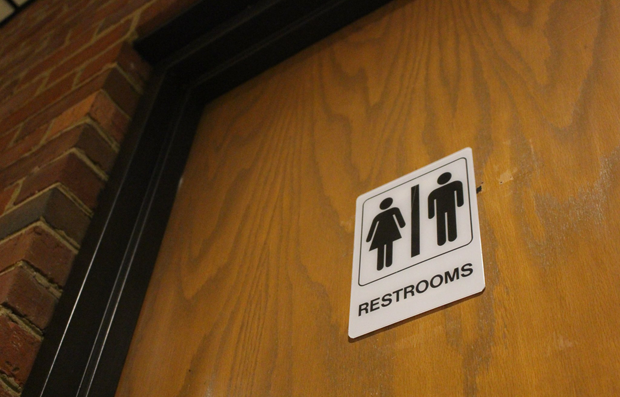
(Photo: Georden West)
A women’s university considered to be one of the most restrictive on transgender issues in the US is reconsidering its approach.
Rated as the strictest of any US university on transgender policies by the Chronicle of Higher Education, Hollins University currently forbids students from making any legal or biological step toward becoming male.
But a university official says the school is considering the addition of gender-neutral bathrooms to make the campus more welcoming and to support its students on the transgender spectrum.
Founded in 1842, Hollins University has attracted many now famous names including writers Annie Dillard and Margaret Wise Brown, US Poet Laureate Natasha Trethewey and White House correspondent Ann Compton.
However, in the past few years its restrictive policy on the retention of transgender students has attracted national attention from activists and academics.
The current policy states that any student who “’self identifies’ as a male and initiates any of the following processes: 1) begins hormone therapy with the intent to transform from female to male, 2) undergoes any surgical process (procedure) to transform from female to male or 3) changes her name legally with the intent of identifying herself as a man,” will not be allowed to graduate from the university. After substantial criticism, Hollins agreed to re-evaluate its policy and drafted a new version in 2013. The current policy also maintains the university’s position against allowing female-to-male students and adds that any student who chooses to undergo sex reassignment “will be helped [by university officials] to transfer to another institution.”
The issue of gender-neutral spaces has become increasingly contentious and polarising with the emergence of a new transgender-equality group on campus called EqualiT*. Its appearance was marked by mysterious flyers in bathroom stalls and on announcement boards calling for the addition of gender-neutral bathrooms. Soon a blog and a Facebook page also appeared, and the group began to stage events, including a candlelight vigil to commemorate Transgender Awareness Day. Due to the sensitive nature of the organisation, the group has remained mainly anonymous in hopes of protecting its transgender members. Some students fear that, if exposed, transgender students will lose their scholarships or be expelled from the university. The university has not taken any action against students who are legally and biologically female, but some students say they self-censor because they are worried about what may happen.
With a student population of less than 600, low retention rates and a high-priced tuition cost of over $46,000 per year, critics question whether the university can afford to alienate any portion of its student demographic.
The forced removal of transgender students from Hollins presents not only financial and academic challenges but a threat to students’ safety. Forty-five per cent of transgender university students in the US reported experiencing verbal, physical or sexual abuse due to their gender identity according to a 2011 study by the National Center for Transgender Equality. Many transgender students attending all-female institutions regard the environment as safe and welcoming and fear for their safety in transferring to a coeducational environment. A study in 2006 revealed that one in twelve transgender people is murdered in the United States, and many more experience severe verbal harassment and physical violence.
“I believe creating gender neutral safe spaces should be at the forefront of the actions Hollins is taking right now,” said Cal Thompson, a transgender student who graduated in the spring of 2014. “Everyone needs a safe space for personal business. We don’t want to use the gendered bathrooms just as badly as the cisgendered don’t want us.”
Despite the relative safety transgender students feel at Hollins, students still find the university a challenging place to explore individual gender identities. Perhaps one of the most substantial of these challenges is in the lack of gender-neutral spaces, specifically bathrooms. Because of the requirement for students to remain female during their time at Hollins, students who identify as transgender are prohibited from using the men’s restroom.
“Using the bathroom at Hollins was uncomfortable,” said Lee Collie, a 2013 graduate, known as Leanna during his time at Hollins. “Even if you flip the sign to ‘male’ when you walk in, girls walked in all the time and said, ‘Oh, it’s just Lee,’ which meant that they didn’t really see me as a male.”
Hollins’ Dean of Students, Patty O’Toole told Index, “As we continue to renovate our facilities, when appropriate we are considering developing gender-neutral bathrooms.” With regards to facilities in residence halls, students in each community can collectively determine facility-usage and associated language, O’Toole said. Bathroom usage in residence halls is indicated by a paper sign for each hall’s bathroom, which can be flipped over to indicate different users. Thus, some facilities may be labelled with “men” and “women,” while others may use “residents” and “guests.” No other official steps have been taken to utilise gender-neutral language.
A number of students disagree with the student organisation’s position, including current student Deborah Birch, class of 2016. “I don’t think that there should gender-neutral bathrooms on campus. You apply to Hollins knowing that it is an all-women’s institution. If want to change your biological make-up to transition from female to male, you should choose to attend another institution.”
Though transgender graduate Lee Collie likes the idea of gender-neutral restrooms, he also worries about respecting the larger campus community, specifically those with opposing ideals. “I would probably limit them to the dorms or specific floors, because we have professors and visitors who may not feel comfortable.”
Hollins is not the only US institution struggling over whether it should create gender-neutral bathrooms. Recently Illinois State University has attracted media attention through its decision to change its family bathroom to an all-gender bathroom. Although the change was not specifically requested by any students or faculty, ISU officials made the change in efforts to remain proactive and to promote inclusivity among all members of campus. Over 150 universities across the United States have instituted similar changes in campus facilities, including New York University, Ohio State University and UCLA. Even fellow women’s universities like Smith College in Massachusetts and Agnes Scott College in Georgia have begun to embrace the issue, with the addition of gender-neutral restrooms and more progressive policies.
Collie, a former vice president of the university’s student government association, stated that the policy at Hollins may be strict, but he is glad that Hollins has a policy and acknowledges the existence of transgender students on campus. Other women’s universities have yet to adopt any policy on the matter.
Dean of Students, Patty O’Toole explained that the 2011 policy was originally created by the university’s Board of Trustees in response to students on the transgender spectrum who were seeking a written policy. “Hollins wanted to support those students. The focus of the policy is not strictness but clarifying our institutional mission.”
Collie supported the university’s actions and its mission as a women’s institution, despite the personal challenges he faced, and related the support and camaraderie he experienced at the university. “Hollins has never punished me for being or identifying as male. It isn’t that they’re trying to stop someone from being who they really are, but it is Hollins standing true to itself as well.”
This article was published on August 6, 2014 at indexoncensorship.org





